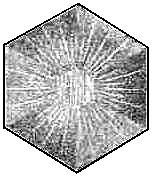Friday, June 24, 2022
Verbum Sat
Sunday, June 23, 2019
Verbum Sat
Vinnie Mancuso, in an article now dated December 25, 2018 —
Related art —
Click image for further details.
Wednesday, March 13, 2013
Saturday, February 18, 2017
Verbum
The Log24 version (Nov. 9, 2005, and later posts) —
|
VERBUM
|
See also related material in the previous post, Transformers.
Saturday, September 5, 2009
Saturday September 5, 2009
Burning Man

(Cover slightly changed.)
Background —
SAT
Part I:
Part II:
 |
Part III:
From August 25th —

"Boo, boo, boo,
square root of two."
Saturday, January 6, 2007
Saturday January 6, 2007
Picture of Nothing
On Kirk Varnedoe’s
2003 Mellon Lectures,
“Pictures of Nothing“–
“Varnedoe’s lectures were ultimately
about faith, about his faith in
the power of abstraction,
and abstraction as a kind of
anti-religious faith in itself….”
Related material:
The more industrious scholars
will derive considerable pleasure
from describing how the art-history
professors and journalists of the period
1945-75, along with so many students,
intellectuals, and art tourists of every
sort, actually struggled to see the
paintings directly, in the old
pre-World War II way,
like Plato’s cave dwellers
watching the shadows, without
knowing what had projected them,
which was the Word.”
— Tom Wolfe, The Painted Word
“Concept (scholastics’ verbum mentis)–
theological analogy of Son’s procession
as Verbum Patris, 111-12″
— Index to Joyce and Aquinas,
by William T. Noon, S.J.,
Yale University Press 1957,
second printing 1963, page 162
“So did God cause the big bang?
Overcome by metaphysical lassitude,
I finally reach over to my bookshelf
for The Devil’s Bible.
Turning to Genesis I read:
‘In the beginning
there was nothing.
And God said,
‘Let there be light!’
And there was still nothing,
but now you could see it.'”
— Jim Holt, Big-Bang Theology,
Slate‘s “High Concept” department

“Bang.”
“…Mondrian and Malevich
are not discussing canvas
or pigment or graphite or
any other form of matter.
They are talking about
Being or Mind or Spirit.
From their point of view,
the grid is a staircase
to the Universal….”
For properties of the
“nothing” represented
by the 3×3 grid, see
The Field of Reason.
For religious material related
to the above and to Epiphany,
a holy day observed by some,
see Plato, Pegasus, and the
Evening Star and Shining Forth.
Saturday, December 24, 2005
Saturday December 24, 2005
“Concept (scholastics’ verbum mentis)–
theological analogy of Son’s procession
as Verbum Patris, 111-12″
— index to Joyce and Aquinas,
by William T. Noon,
Society of Jesus,
Yale University Press 1957,
second printing 1963, page 162
Then there is
the Daughter’s procession:

For the String Theory
Appreciation Club, see
Raoul Bott, 1923-2005.
For another
imaginary club, see
The Club Dumas (below).
For a non-imaginary club,
see the organization
that included Noon (above).
Sunday, August 21, 2022
Saturday, March 10, 2012
Boo Boo Boo*
Academics today—
-
- What Stanley H. Kaplan taught us about the S.A.T.
- VERBUM SAT in this journal
- In the Beginning Was the Void†—

Home Page of Steven Z. Levine
(A.B., A.M., Ph.D., all at Harvard University, 1968-1974)—
Note that Levine states forthrightly that he won Third Prize for Bad Writing
from the international journal Philosophy and Literature in 1998.
* Stanley H. Kaplan, mnemonic for “square root of two.”
† On the void — See this morning’s post and “Is Nothing Sacred?“
Wednesday, January 4, 2006
Wednesday January 4, 2006
In memory of Humphrey Carpenter, author of The Inklings, who attended The Dragon School. Carpenter died a year ago today.
"Lewis began with a number of haunted images…."
"The best of the books are the ones… where the allegory is at a minimum and the images just flow."
"'Everything began with images,' Lewis wrote…."

From Paul Preuss,
Broken Symmetries
(see previous entry):
From
Verbum Sat Sapienti?


Wednesday, November 16, 2005
Wednesday November 16, 2005
"The best of the books are the ones… where the allegory is at a minimum and the images just flow."
"'Everything began with images,' Lewis wrote…."
"We go to the writing of the marvellous, and to children’s books, for stories, certainly, and for the epic possibilities of good and evil in confrontation, not yet so mixed as they are in life. But we go, above all, for imagery: it is the force of imagery that carries us forward. We have a longing for inexplicable sublime imagery…."
"The religious believer finds consolation, and relief, too, in the world of magic exactly because it is at odds with the necessarily straitened and punitive morality of organized worship, even if the believer is, like Lewis, reluctant to admit it. The irrational images– the street lamp in the snow and the silver chair and the speaking horse– are as much an escape for the Christian imagination as for the rationalist, and we sense a deeper joy in Lewis’s prose as it escapes from the demands of Christian belief into the darker realm of magic. As for faith, well, a handful of images is as good as an armful of arguments, as the old apostles always knew."
Click on pictures for details.
See also Windmills and
Verbum sat sapienti?
as well as
at Calvin College
on Simone Weil,
Charles Williams,
Dante, and
"the way of images."
Thursday, October 24, 2024
Space Vesper: “Shaken, Not Stirred”
A Tuesday dies natalis —

From the Log24 post "Verbum" (Saturday, February 18, 2017).
A different Tuesday —
Tuesday Weld in the 1972 film of Didion's Play It As It Lays :
Note the making of a matching pattern.
Wednesday, November 9, 2005
Wednesday, August 24, 2005
Wednesday August 24, 2005
High Concept, continued:
“In the beginning there was nothing.
And God said, ‘Let there be light!’
And there was still nothing,
but now you could see it.“
— Jim Holt, Big-Bang Theology,
Slate‘s “High Concept” department
Related material:
- On the phrase “verbum mentis”
- From Satan’s Rhetoric, by Armando Maggi
(University of Chicago Press, 2001):
| Page 110:
“In chapter I I explained that devils first and foremost exist as semioticians of the world’s signs. Devils solely live in their interpretations, in their destructive syllogisms. As Visconti puts it, devils speak the idiom of the mind.37 …. The exorcist’s healing voice states that Satan has always been absent from the world, that his disturbing and unclear manifestations in the possessed person’s physicality are really nonexistent occurrences, nothing but disturbances of the mind, since evil itself is a lack of being.” Footnote 37, page 110: “It is necessary to distinguish the devils’ ‘language of the mind’ and Augustine’s verbum mentis (word of the mind), as he theorizes it first of all in On the Trinity (book 15). The devils’ language of the mind disturbs the subject’s internal and preverbal discourse.” |







